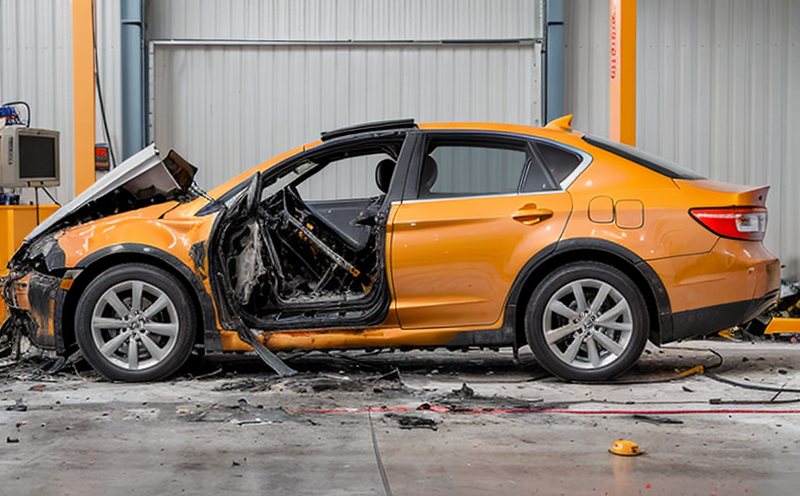UNE EN 62660-2 Mechanical Abuse Testing of Lithium-Ion Cells in EV Applications
The European Norm (EN) standard UNE EN 62660-2 specifies the mechanical abuse testing procedures for lithium-ion cells intended for use in electric vehicle (EV) applications. This test is critical to ensure that the cells are capable of withstanding potential stresses encountered during real-world usage, such as crashes or rough handling.
The standard covers a range of tests designed to simulate various types of mechanical abuse, including crush, drop, and vibration. These tests help manufacturers evaluate the robustness and safety of their battery cells under extreme conditions. Understanding these requirements is essential for quality managers and compliance officers responsible for ensuring product integrity in the rapidly evolving electric vehicle industry.
The test procedures outlined in UNE EN 62660-2 are designed to be rigorous yet practical, providing a standardized approach that ensures consistency across manufacturers. For R&D engineers and procurement professionals, this standard serves as a benchmark for developing new battery technologies and sourcing reliable suppliers.
One of the key aspects of UNE EN 62660-2 is its emphasis on real-world relevance. The mechanical abuse tests simulate conditions that can occur during vehicle crashes or other mishandling scenarios, ensuring that the cells remain functional and safe even under extreme stress. This standardization helps in reducing the risk of failures that could lead to safety hazards.
The test setup typically involves a controlled environment where the lithium-ion cells are subjected to specific forces and impacts. The equipment used for these tests is calibrated according to the standards outlined, ensuring accurate and reproducible results. Compliance officers need to ensure that their testing facilities meet these requirements to validate product safety effectively.
Understanding the detailed procedures of UNE EN 62660-2 is crucial for those involved in developing and validating EV batteries. The standard specifies not only the types of tests but also the criteria for passing, which include visual inspections, electrical performance checks, and structural integrity assessments post-test.
The acceptance criteria are stringent to ensure that only robust cells can pass these tests. This stringency is particularly important in the context of electric vehicles, where safety and reliability are paramount. Quality managers rely on such standards to maintain high-quality control processes within their organizations.
Applied Standards
| Standard Number | Description |
|---|---|
| UNE EN 62660-2 | European Norm specifying mechanical abuse testing procedures for lithium-ion cells in EV applications. |
| ISO/IEC Guides | General guidelines for standardization and conformity assessment related to batteries. |
Eurolab Advantages
Eurolab offers comprehensive expertise in UNE EN 62660-2 testing, leveraging state-of-the-art facilities and experienced personnel to deliver accurate and reliable test results. Our laboratories are equipped with the latest equipment, ensuring that we can replicate real-world conditions accurately.
We provide a range of services including pre-test consultation, specimen preparation guidance, and post-test analysis. Our compliance officers ensure that all tests meet the stringent requirements specified in UNE EN 62660-2, providing peace of mind to our clients.
Our R&D engineers work closely with manufacturers to develop innovative testing protocols tailored to specific needs, ensuring that products not only comply with standards but also exceed expectations. Procurement professionals can trust Eurolab for accurate supplier evaluations and quality assurance.
We offer competitive pricing without compromising on quality or service excellence. Our commitment to customer satisfaction is reflected in our timely delivery of test results and proactive communication throughout the testing process.
Use Cases and Application Examples
- Crash Testing: Ensuring that battery cells can withstand severe impacts during vehicle accidents.
- Rough Handling: Evaluating the resilience of batteries under conditions like dropping or bumping.
- Safety Assurance: Providing critical data for product safety and regulatory compliance.
- Innovation Support: Helping manufacturers identify potential weaknesses in their designs and improve durability.





